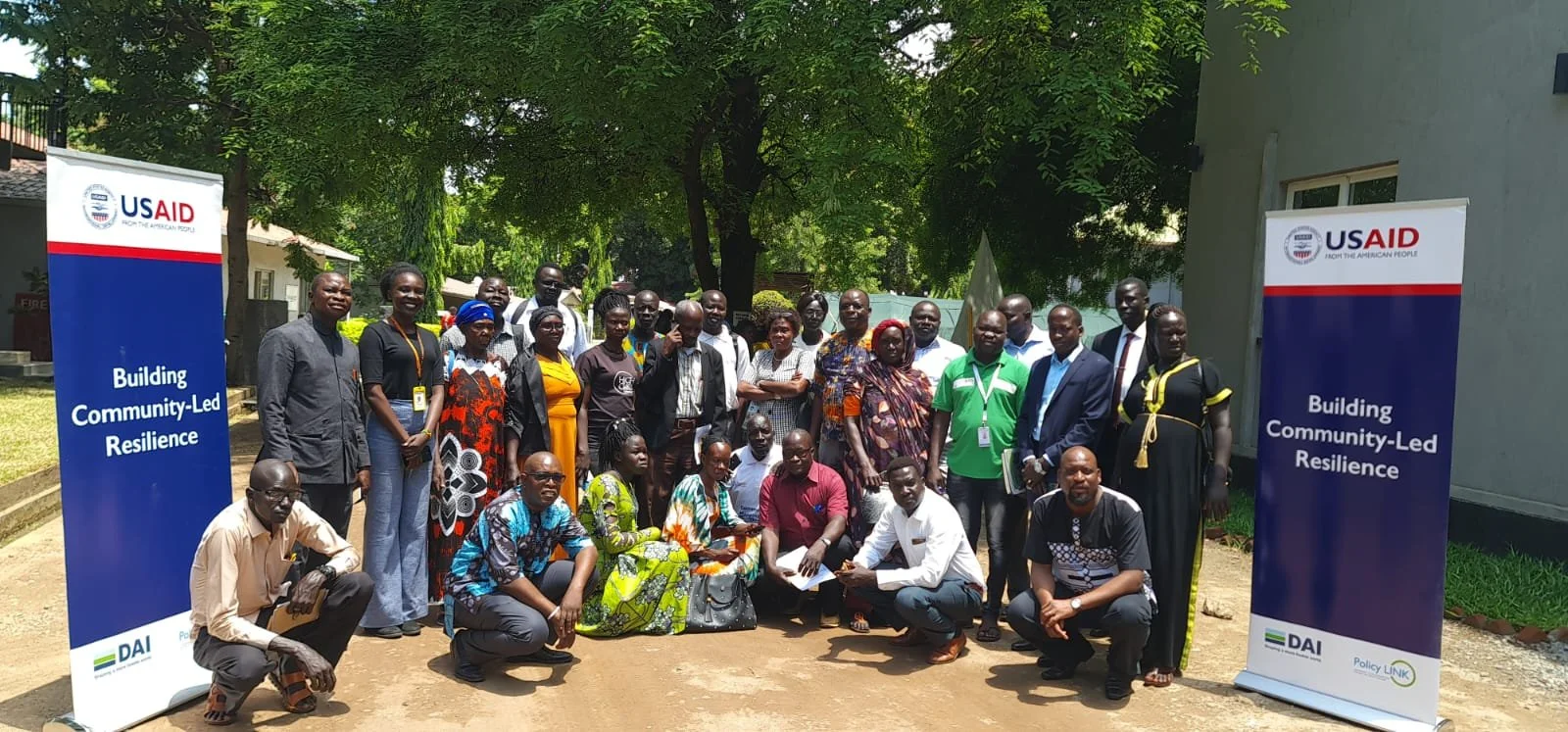Policy LINK Showcases Community Perspectives on Locally-Led Resilience in South Sudan
Attendees at the March 16, 2023 learning event in Juba, South Sudan.
Policy LINK’s South Sudan team has been sharing back some of the learning from its activities in the country with a range of national and regional stakeholders.
At a May 9-12, 2023 event in Naivasha, Kenya, dubbed the Greater Horn of Africa Regional Knowledge Sharing Meeting and focusing on “Humanitarian-Development-Peace Coherence in Food Security Crisis Contexts,” the Policy LINK team addressed the plenary panel and participated in country and thematic sessions as well as hosted an information booth to share knowledge products highlighting the activity’s joint work planning approach.
That approach, as with all Policy LINK interventions, centers local knowledge and encourages donors and their implementing partners (IPs) to design programs around it. By sharing its series of resource guides, priority action plans for Jur River and Wau counties, and a forthcoming outcome harvesting report—for which the team shared a brief at the Naivasha event—Policy LINK also drives home the importance of donors and IPs working together. (See the Policy LINK South Sudan Resource Portal for access to the activity’s knowledge products.)
Approximately 250 people attended the Naivasha event, the first in-person gathering of its kind since the onset of the Covid-19 pandemic.
At an earlier, March 16, 2023 workshop organized by Policy LINK, community members in South Sudan shared evidence of progress in their own work to build resilience in the face of threats to health, food security, and livelihoods.
Policy LINK publications on display at the May 9-12, 2023 event in Naivasha.
Twenty-two delegates from Wau and Jur River Counties—two of the 13 counties in South Sudan that form USAID’s Resilience Focus Zone—presented peace dialogues, sports competitions, new storage facilities for farmers, village savings and loans associations (VSLAs), and more initiatives that have been created at the local level and supported by government and USAID IPs.
Policy LINK has worked in South Sudan since 2020 to support ground-up initiatives through a five-step participatory planning approach that includes stakeholder engagement, local and county-level action planning, work planning, and community feedback.
With opening remarks from USAID Mission Director Kate Crawford and participation from USAID’s Economic Growth Office Director and Program Office Director, the workshop outlined the Policy LINK participatory approach before local delegates presented their community-led actions.
The actions are intended to reduce vulnerability among rural populations coping with drought, conflict, and other “shocks and stressors.”
In Jur River County, where residents identified conflict as a persistent shock, the community launched dialogues and sporting events and secured government and UNMISS responses to local requests for improved security.
To address food security and economic shocks, the community proposed and garnered IP support to build storage facilities for farmers, establish VSLAs, and distribute seeds, tools, and equipment.
A community-developed awareness campaign addressed the threat of floods, encouraging residents to move inland, away from the riverside, and ensured collaboration with IPs to provide mosquito nets, plastic sheets, hygiene kits, and food assistance for flood victims.
In Wau County, where residents identified conflict arising from cattle migration as a threat, they initiated consultation meetings in affected areas and a three-day inter-state conference in November 2022, supported by IPs and the government.
In addressing health concerns, the Wau delegates described how the community partnered with IPs to conduct routine awareness on common diseases, construct and renovate primary health care centers, provide clean drinking water, and organize training for water management committees.
Analysis of these initiatives, also presented in the workshop, shows how communities can lead in resilience-building. With facilitated community engagement at the heart of Policy LINK’s process, communities began to see themselves as project owners rather than aid recipients. This shift in mindset sparked the community to come together, identify issues, and plan to address them.
With local communities at the center of their own development, efforts like Policy LINK’s participatory planning approach can complement, rather than direct or override, the community’s own resilience capacity.
Resources
Read more about the Horn of Africa event here.
Read more stories about Policy LINK’s work in South Sudan.


